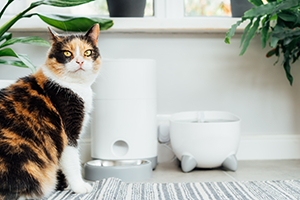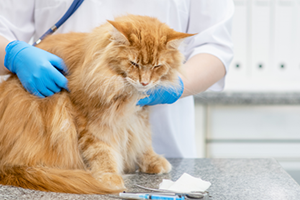Fireworks season can be a frightening time for our pets. Many cats are frightened ofloud noises – and that includes fireworks. Cats perceive the sudden bangs, whooshes and flashes of light as a threat that might cause them harm, so in many cases, their natural response is to run and hide somewhere safe.
Fortunately, there are ways to help reduce a cat’sstress and anxiety. You can try these strategies to help a scared cat – ideally at least a month in advance of Bonfire Night or other noisy festivities. But first, it’s helpful to understand why cats might be scared.
















